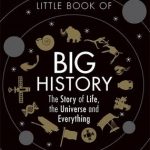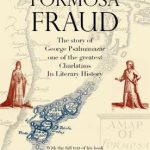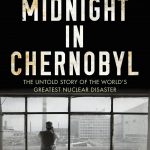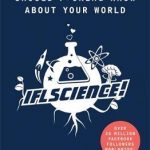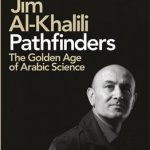Disclosure : This site contains affiliate links to products. We may receive a commission for purchases made through these links.
The Greatest Story Ever Told…So Far
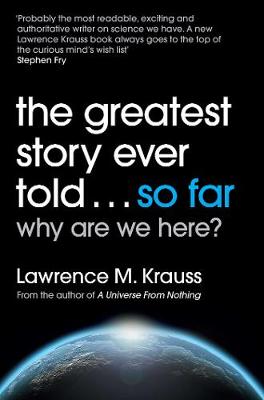
`Probably the most readable, exciting and authoritative writer on science we have. A new Lawrence Krauss book always goes to the top of the curious mind`s wish list.` Stephen Fry โ€I loved the fight scenes and the sex scenes were excellent.โ€ (Eric Idle) `In the span of a century, physics progressed from skepticism that atoms were real to equations so precise we can predict properties of subatomic particles to the tenth decimal place. Lawrence Krauss rightly places this achievement among the greatest of all stories, and his book-at once engaging, poetic and scholarly-tells the story with a scientist`s penetrating insight and a writer`s masterly craft.` (Brian Greene, author of The Elegant Universe, and Director, Center for Theoretical Physics, Columbia University) โ€Unlike some very clever scientists, Lawrence Krauss is not content to bask on the Mount Olympus of modern physics. A great educator as well as a great physicist, he wants to pull others up the rarefied heights to join him. But unlike some science educators, he doesn`t dumb down. In Einstein`s words, he makes it `as simple as possible but no simpler.`โ€ (Richard Dawkins, author of The Magic of Reality) โ€In every debate I`ve done with theologians and religious believers their knock-out final argument always comes in the form of two questions: Why is there something rather than nothing? and Why are we here? The presumption is that if science provides no answers then there must be a God. But God or no, we still want answers. In A Universe From Nothing Lawrence Krauss, one of the biggest thinkers of our time, addressed the first question with verve, and in The Greatest Story Ever Told he tackles the second with elegance. Both volumes should be placed in hotel rooms across America, in the drawer next to the Gideon Bible.โ€ (Michael Shermer, Publisher Skeptic magazine, columnist Scientific American, Presidential Fellow Chapman University, author The Moral Arc.) โ€A Homeric tale of science, history, and philosophy revealing how we learned so much about the universe and its tiniest parts.โ€ (Sheldon Glashow, Nobel Laureate, 1979 in physics) โ€The Greatest Story Ever Told-So Far ranges from Galileo to the LHC and beyond. It`s accessible, illuminating, and surprising-an ideal guide for anyone interested in understanding our accidental universe.โ€ (Elizabeth Kolbert, Pulitzer Prize-winning author of The Sixth Extinction) โ€College students, hippies, squares, Christians, Muslims, democrats, republicans, libertarians, theists, even atheists-all of us-sit around BS-ing like: `So, how did all this, I mean everything, all of us, the whole universe, you know, man, everything, how did this all get here?` While we were doing that, Lawrence Krauss and people like him were doing the work to figure it out. Then Krauss wrote this great book about it. `Wow, man, you mean, like we`re getting closer to really knowing? I guess we`ll have to go back to talking about politics and sex.`โ€ (Penn Jillette, author of Presto!) โ€Discovering the bedrock nature of physical reality ranks as one of humanity`s greatest collective achievements. This book gives a fine account of the main ideas and how they emerged. Krauss is himself close to the field, and can offer insights into the personalities who have led the key advances. A practiced and skilled writer, he succeeds in making the physics `as simple as possible but no simpler.` I don`t know a better book on this subject.โ€ (Martin Rees, author of Just Six Numbers) โ€It is an exhilarating experience to be led through this fascinating story, from Galileo to the Standard Model and the Higgs boson and beyond, with lucid detail and insight, illuminating vividly not only the achievements themselves but also the joy of creative thought and discovery, enriched with vignettes of the remarkable individuals who paved the way. It amply demonstrates that the discovery that `nature really follows the simple and elegant rules intuited by the 20th- and 21st-century versions of P













